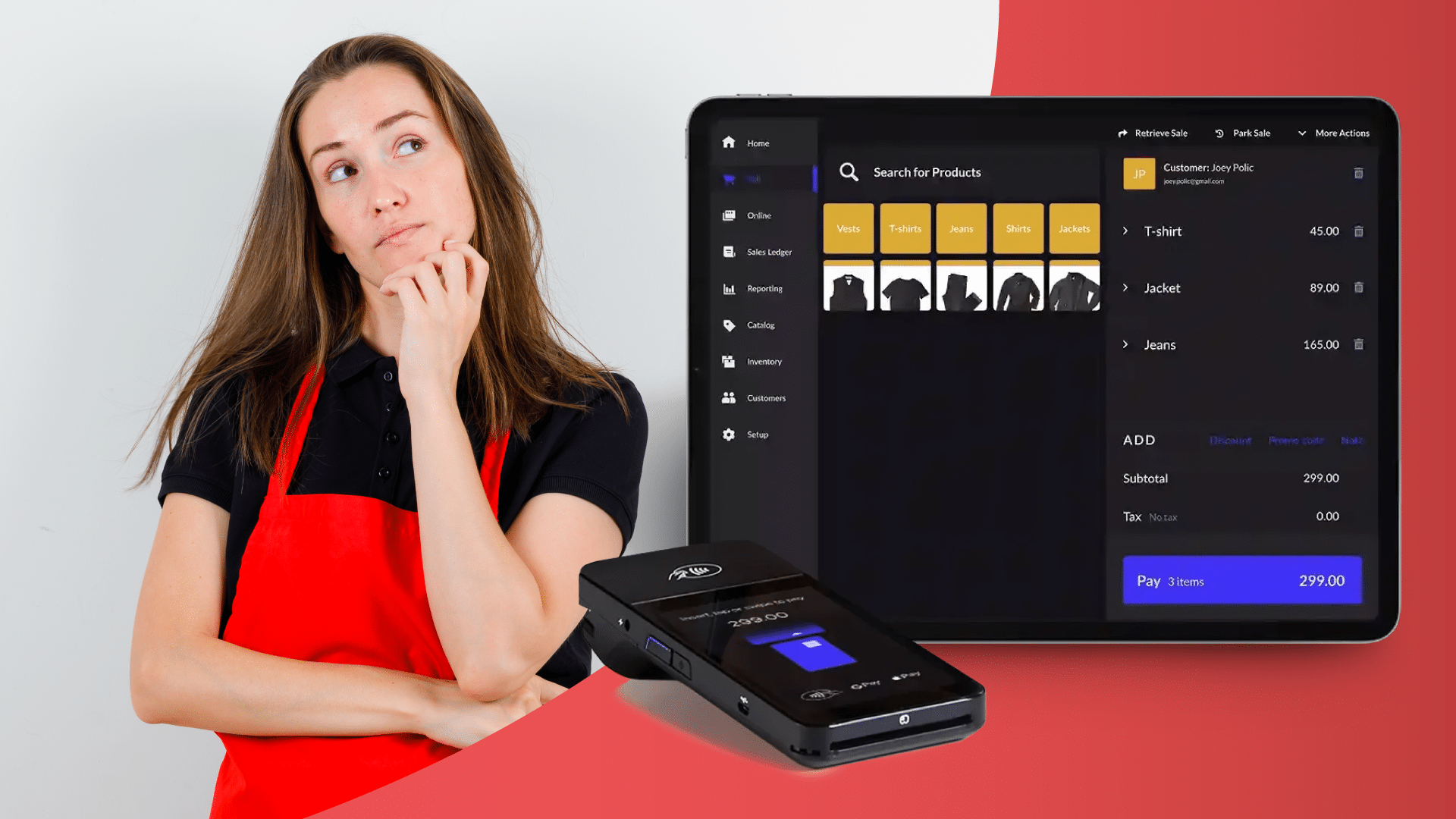This is a comprehensive review of Lightspeed POS, a popular cloud-based POS solution designed for retailers, restaurants, and golf courses.
The review covers Lightspeed’s pricing tiers, key features, strengths, and weaknesses, as well as the typical businesses it serves. It also compares Lightspeed to alternative POS solutions, like KORONA POS, and answers frequently asked questions about the software.
Whether you’re considering adopting Lightspeed POS or just want to learn more about it, this detailed review provides all the essential information for making an informed business decision.
Lightspeed POS Review: Our Verdict
Lightspeed: Our Verdict
Summary
Lightspeed POS is a cloud-based POS system designed for retailers and restaurants. One of its major strengths is its flexibility—it can be customized for different industries and business sizes.
The user interface is intuitive and easy to learn, with a clean design that makes it easier to manage sales, inventory, customers, employees, and reports.
The software integrates with popular accounting tools and eCommerce platforms and offers advanced inventory management capabilities, including low-stock alerts, bundling, and variants.
Lightspeed also allows businesses to sell across multiple channels, such as online, in-store, and mobile. Customer relationship management tools help build loyalty programs and target marketing campaigns.
Quick Pricing Info
- Restaurant: Starting at $69/mo (no annual discount)
- Retail: Starting at $89/mo (if paid annually)

Pros
- Versatility
- User-friendly interface
- Scalability
- Integration
Cons
- Cost
- Learning curve
- Customer support
OUR VERDICT
Lightspeed POS seems like a strong contender for retail and restaurant businesses, particularly those looking for a scalable solution with a comprehensive feature set. Retail stores like clothing stores, sporting goods stores, etc., can greatly benefit from Lightspeed’s inventory management.
Lightspeed doesn’t offer a free tier, but a 14-day free trial is available. It does not provide great flexibility in terms of payment processing. And customer support isn’t always great, which can be an important factor for many businesses.
What Industries Does Lightspeed POS Work For?
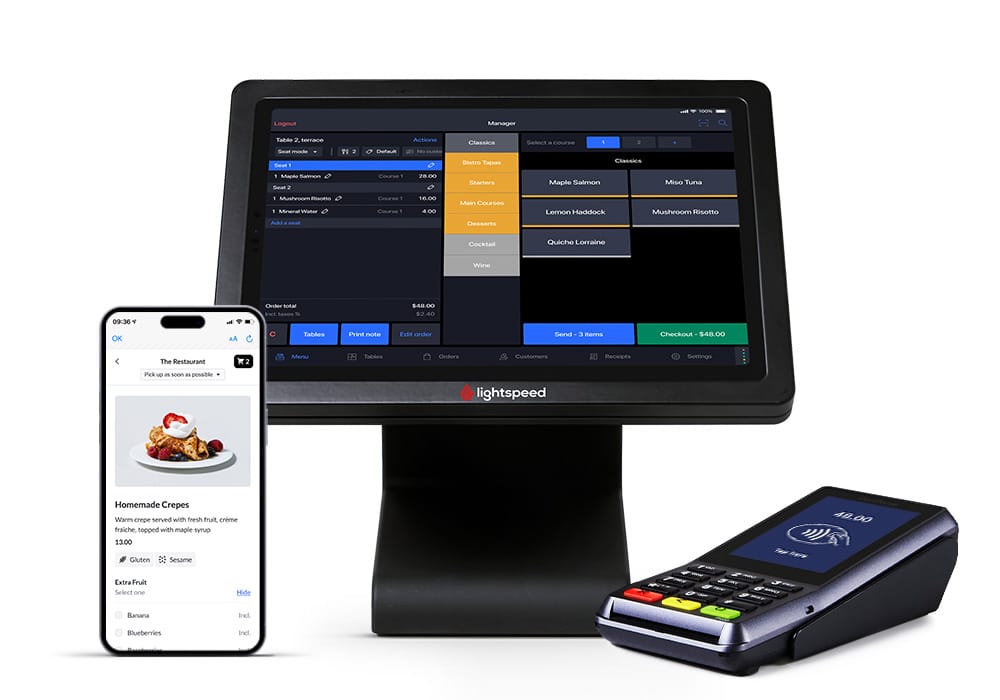
Lightspeed POS caters to a few main business verticals: retail, restaurants, and golf courses.
Retail
Lightspeed offers a POS system specifically designed for the needs of retail stores, whether you have a single location or multiple branches. Here are some examples of retail businesses that can benefit from Lightspeed POS:
- Apparel: Clothing stores, shoe stores, accessory shops
- Specialty: Bike shops, sporting goods stores, jewelry stores, home and garden stores, pet stores, electronics stores, gift stores, health and beauty stores, and toy stores
- Others: Vape shops, CBD stores, liquor stores
- Online retail stores: eCommerce businesses selling a wide range of products from fashion to electronics
- Omnichannel retailers: Businesses that operate both physical stores and online shops, providing a unified shopping experience
Restaurants
Lightspeed POS offers features tailored to the hospitality industry, such as table management, menu customization, and customer loyalty programs. The types of businesses it serves in this vertical include:
- Restaurants: Fine dining restaurants, casual dining, quick service restaurants, cafes, and bistros
- Bars and nightclubs: Pubs, cocktail bars, wine bars, and nightclubs
- Hotels and resorts: Hotel restaurants, room service operations, and resort dining facilities
- Food trucks and pop-ups: Mobile food vendors, food trucks, and temporary dining establishments
- Cafes and coffee shops: Coffee houses, tea rooms, and specialty coffee shops
- Bakeries and pastry shops: Artisan bakeries, pastry shops, and dessert cafes
Other Specialty Businesses
Apart from the main verticals, Lightspeed POS also serves a variety of specialty businesses that may have unique requirements. One example is businesses running golf courses, including multi-course, public, and private ones.
Lightspeed POS Reviews: Pricing
Lightspeed Retail and Lightspeed Restaurant POS offer various pricing plans tailored to the needs of different businesses. Here’s a general overview:
Lightspeed Retail Pricing POS Plans
Lightspeed Retail is designed for apparel, jewelry, sporting goods, toys, vape, multi-store, bike, CBD, electronics, gift stores, and furniture stores. Its pricing structure accommodates businesses of various sizes through its three unique plans:
Basic
$109/mo
For small businesses or startups needing basic retail POS functionalities
Inventory management for tracking products
Basic reporting tools to monitor sales and performance
Free onboarding session to assist in the setup
Access supplier catalogs
Core
$179/mo
For growing retailers with moderate inventory and reporting needs
Advanced reporting and analytics
Mobile scanner app
Lightspeed Live app
Mobile scanner app
Advanced sales, staff, and inventory reports
Accounting, eCommerce, and marketing integrations
Plus
$339/mo
For medium to large retailers requiring advanced inventory and customer management, complex functionality, and multi-location management
Personalized onboarding and training
Integrated forecasting
Raw API access
Lightspeed Restaurant Pricing POS Plans
Lightspeed Restaurant POS caters to hospitality businesses, including cafes, quick-service restaurants, full-service restaurants, hotels, and fine dining establishments. There are four unique plans for restuarants:
Starter
$69/mo
For cafes, bakeries, and other quick-service restaurants that require basic table service
Customizable POS
Menu manager
Floor plans
Multiple order printers
Modifiers
Advanced Insights
Integrated payments
Take out and delivery
Essential
$189/mo
For small cafes and single-location restaurants that need more inventory control
Basic order and table management
Order and pay at table
Lightspeed Live app
Online ordering
Key performance report
Slow and top sellers
Lightspeed Pulse mobile app
Premium
$399/mo
For growing restaurants that need more substantial management capabilities
Multiple revenue center support for hotels
Custom processing rates available
Raw API access
Enterprise
Customized pricing
For high-volume restaurants and multi-location establishments
Multi-location management for seamless operation across sites
Advanced POS analytics and customer insights
Full suite of integrations for payroll, inventory, and customer loyalty
Personalized software and hardware package
Unlimited launch and consultation services
Lightspeed POS Hardware Pricing
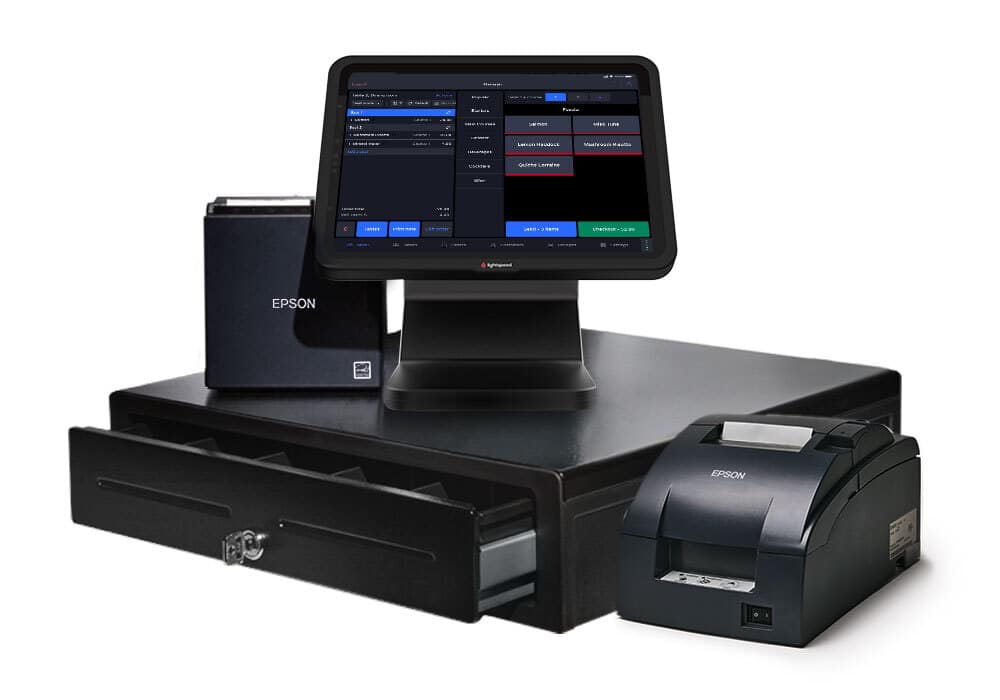
Lightspeed sells a wide range of equipment, including cash drawers, receipt printers, Bluetooth scanners, a Lightspeed iPad stand, and receipt paper.
You’ll notice some overlap across their hardware offerings, so check each item’s operating system and software compatibility before purchasing. The prices of some of Lightspeed POS’s hardware options are listed below:
Lightspeed Stands
The POS hardware stand is a physical device that securely positions a POS, like a tablet or terminal, at a checkout counter. Below are a few of the stands that Lightspeed offers:
1. Lightspeed Stand for iPad
Lightspeed’s $169 hardware stand features a sleek design with a stable metal base, a magnetic swivel for customer interaction, and compatibility with iPad 10th gen, Air 5th gen, and Pro 11″ 5th/6th gen. It includes a USB-C cable.

2. Lightspeed Stand with Payments
This $199 iPad stand features a stable base and card reader enclosure, making it ideal for POS setups. It fits the 10.2″ iPad and is compatible with 7th, 8th, and 9th-generation models.
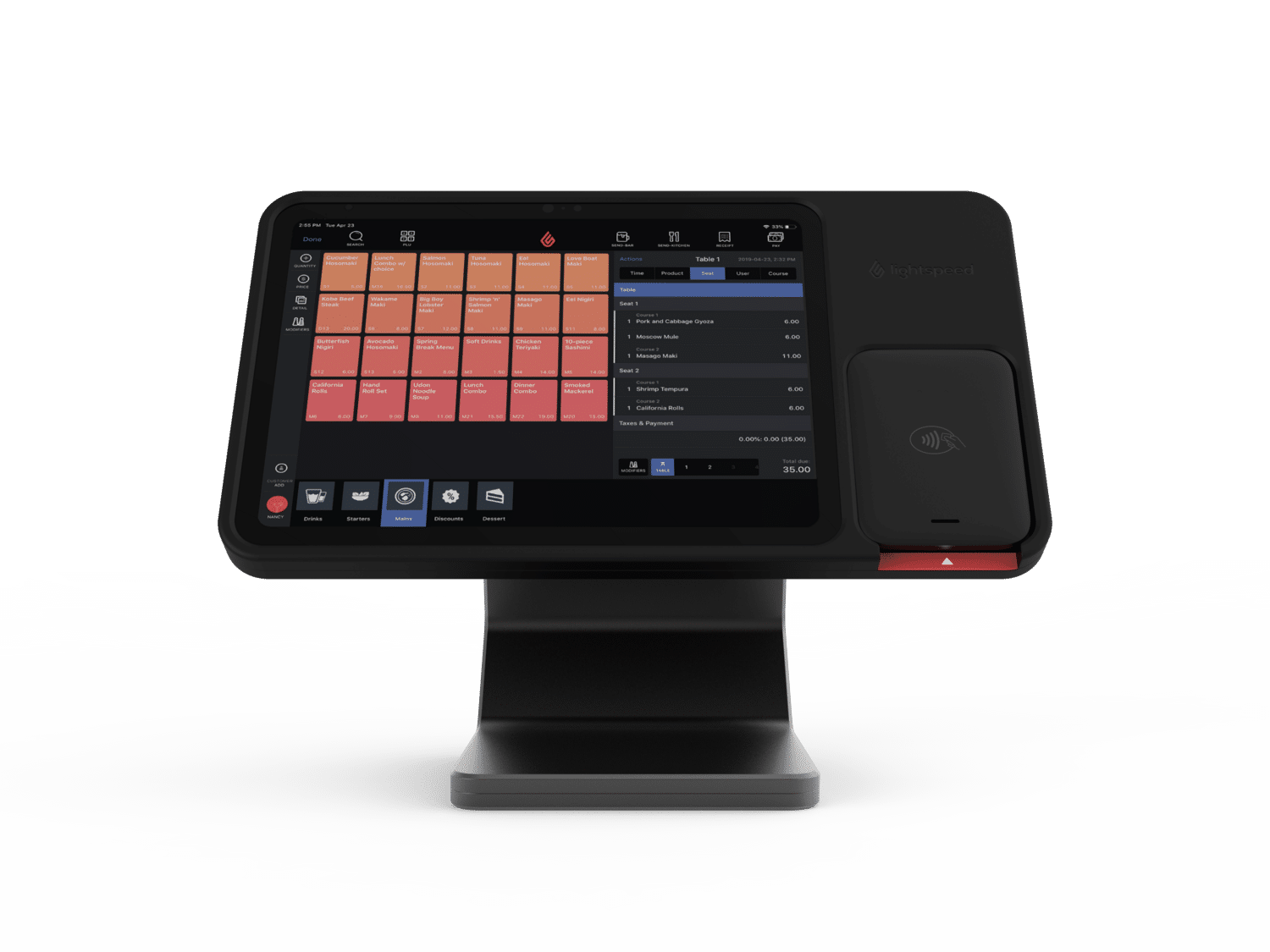
3. Universal Stand for Tablets
The Universal Tablet Stand costs $89 and features a swivel base for customer-facing displays, quick tablet removal for portability, and clear Lightspeed branding. It includes a 180º USB-C cable and supports tablets from 7 to 13 inches.

Lightspeed Terminals
The POS terminal is the hardware that lets merchants process payments. Modern POS terminals range from smartphones with plugged-in card readers to countertop terminals that print receipts, scan bar codes, and more. Here’s what Lightspeed offers:
1. Smart Terminal with Printer, Hospitality
A sleek terminal for processing transactions in hospitality settings, with an integrated printer for receipts. This smart terminal with a printer costs $399.
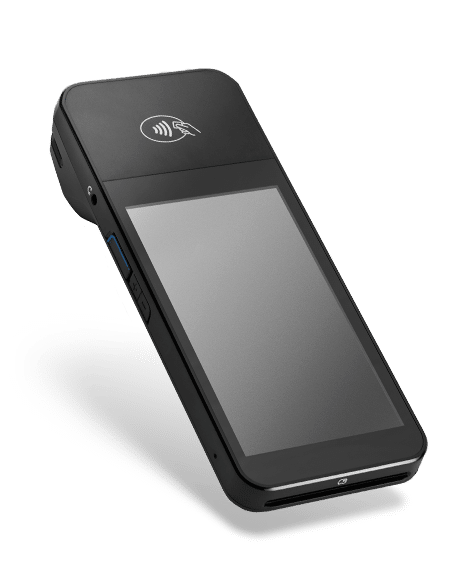
2. Smart Terminal, Retail
This $329.00 countertop reader connects to Lightspeed Payments via the internet. It’s built for a casual retail checkout experience.
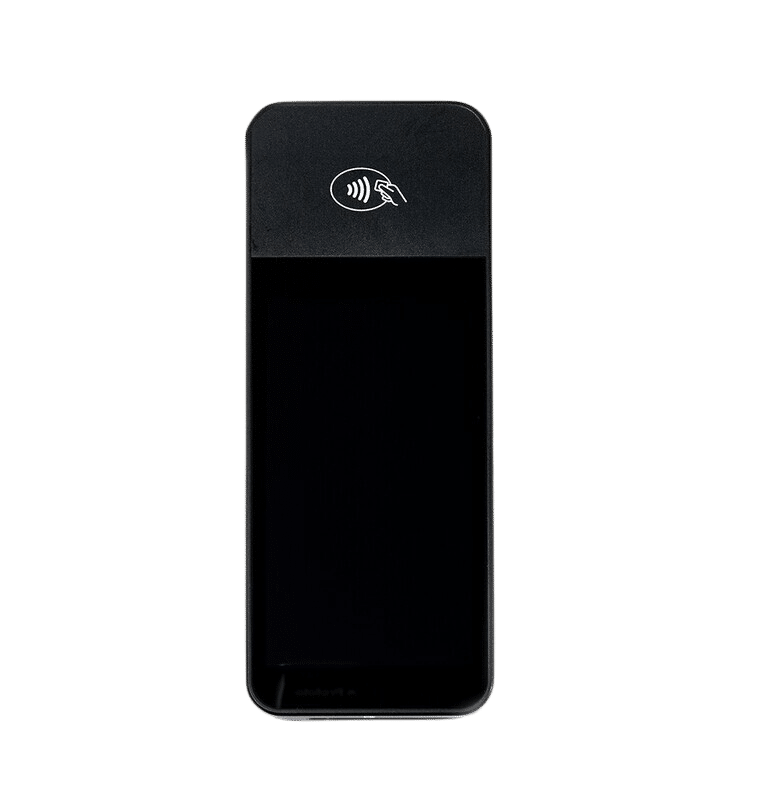
3. Mobile Terminal
This Verifone Mobile Terminal costs $399 and pairs with Lightspeed Hospitality and Golf. It features a quick processor and a touchscreen, making it easy for customers to pay from anywhere.
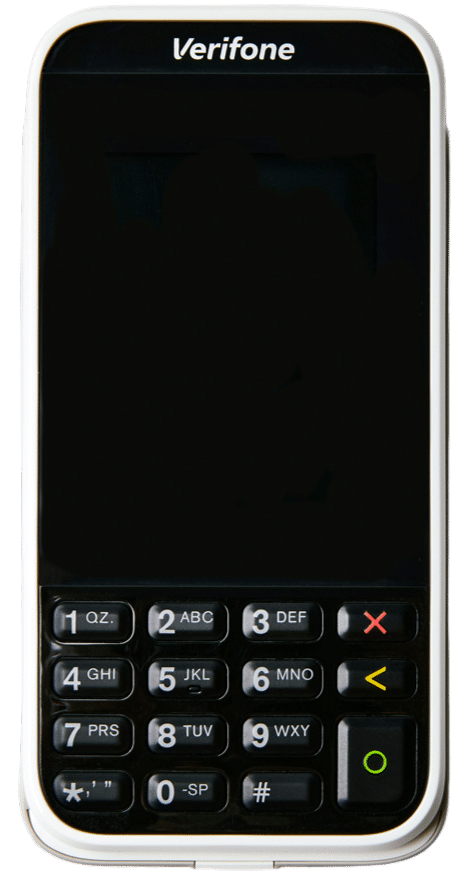
4. Smart Terminal; Hospitality (US)
The AMS1 Smart Terminal is an all-in-one payment terminal that promotes fast and mobile payments. It’s handheld and portable, making it easy for Lightspeed users to take payments on the go.
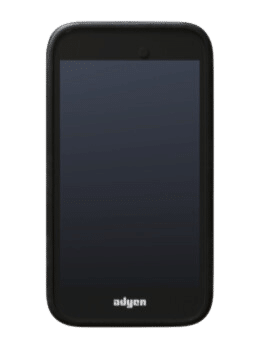
Lightspeed Barcode Scanners
A barcode scanner is a device — typically handheld — that reads barcodes and sends data to a computer. It’s used alongside a POS system for inventory management and asset tracking. Here are some of Lightspeed’s barcode scanners:
1. Lightspeed Bluetooth Barcode Scanner
The Bluetooth Barcode Scanner costs $399. It pairs seamlessly with Lightspeed Golf and Retail. The device is small, lightweight, and equipped with continuous scanning capabilities.
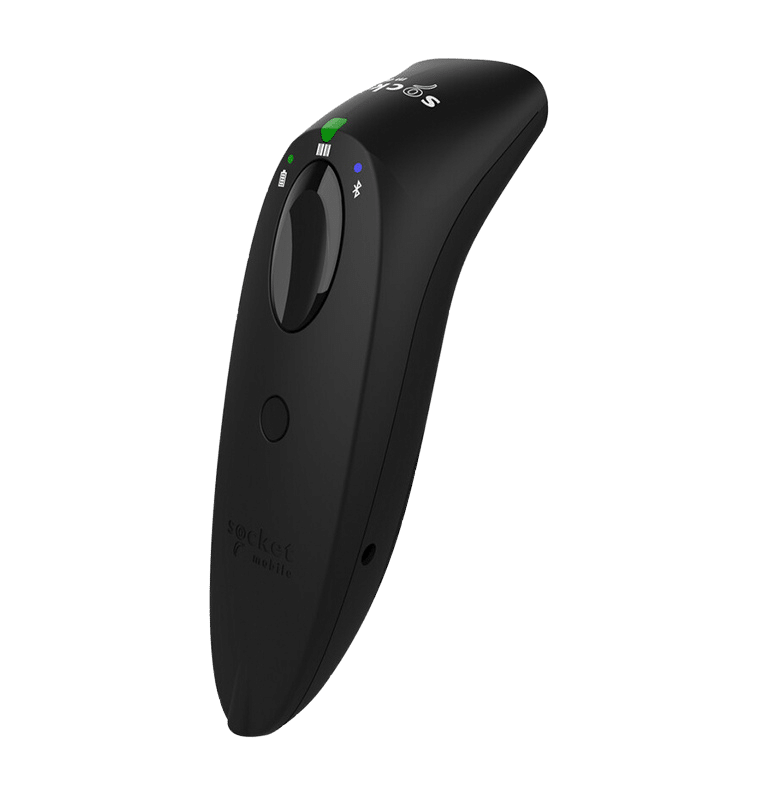
2. USB Barcode Scanner with Stand
The USB Barcode Scanner with Stand (Zebra DS2208) costs $149. It can scan all barcodes, gift cards, and driver’s licenses. Because of the stand, users can enjoy hands-free scanning capabilities.
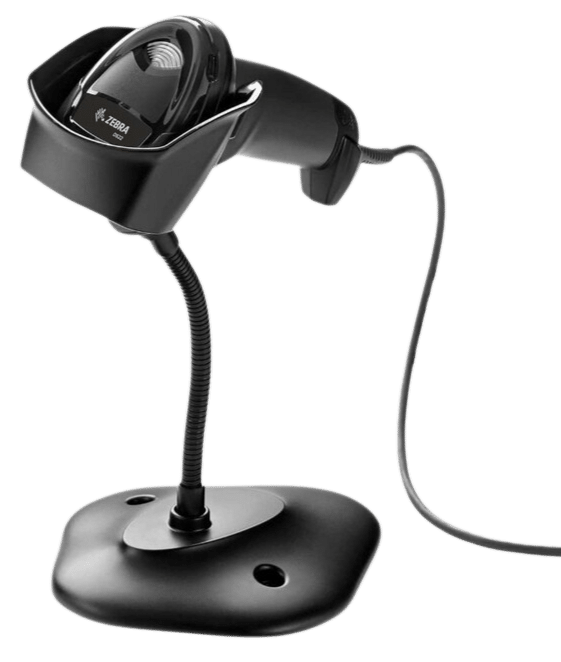
Lightspeed Miscellaneous Hardware
There’s a whole array of lesser-known hardware that goes into a POS system. Learn about some of the miscellaneous hardware that Lightspeed offers:
1. Lightspeed Kitchen Bumpbar
This Lightspeed Kitchen Bumpbar costs $199. It is used to control the Lightspeed Kitchen display. The Bumpbar features keys for moving tickets to the next or previous cooking state, ticket number selection, ticket cancellation, and more.
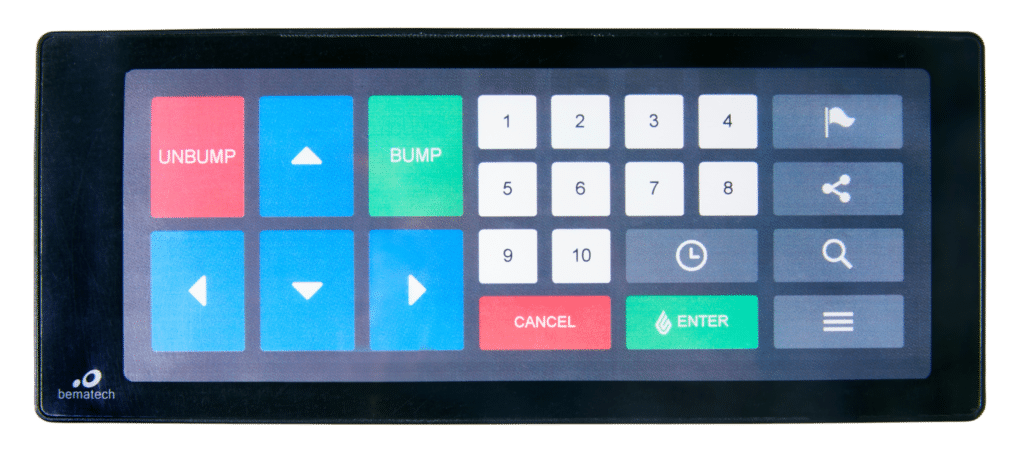
2. Mobile Tap (v2, Hospitality)
The $49 Mobile Tap is a compact Bluetooth card reader for iPad and Lightspeed Payments, supporting swipe, EMV, and tap-to-pay transactions.
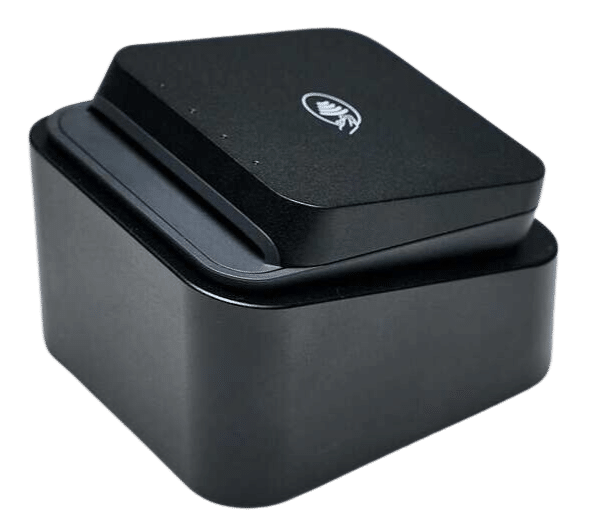
3. Lightspeed 16″ Cash Drawer (APG Minota)
This Lightspeed cash drawer costs $129. It is durable, has ample space for organizing bills and coins, and is compatible with most POS systems.
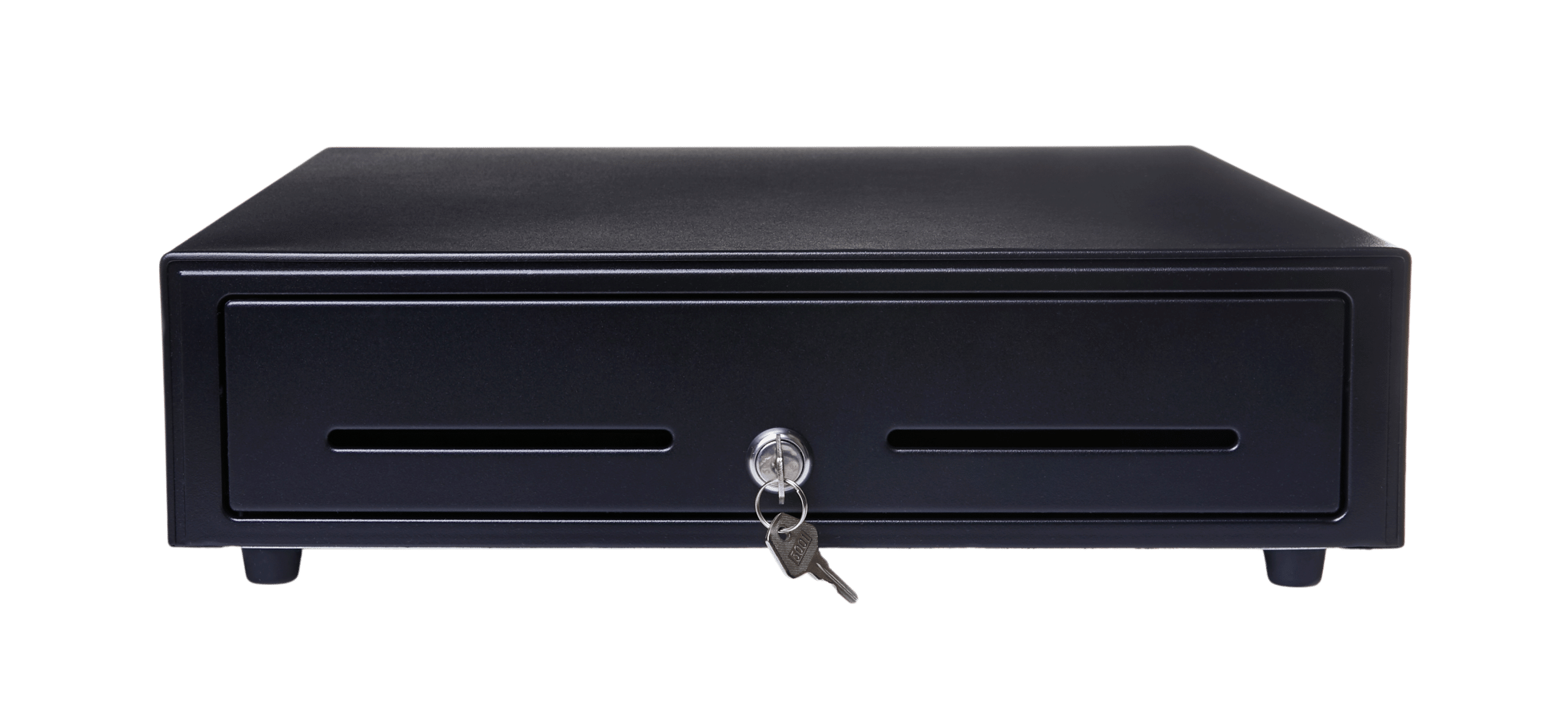
4. Lightspeed Lite Server
The Lightspeed Lite Server is featured within Lightspeed Lite’s networking hardware, coming in at $429. The Lite server maintains a local database and connectivity, continually backing up user data to Lightspeed servers. During an internet outage, users can continue essential business without disruption.
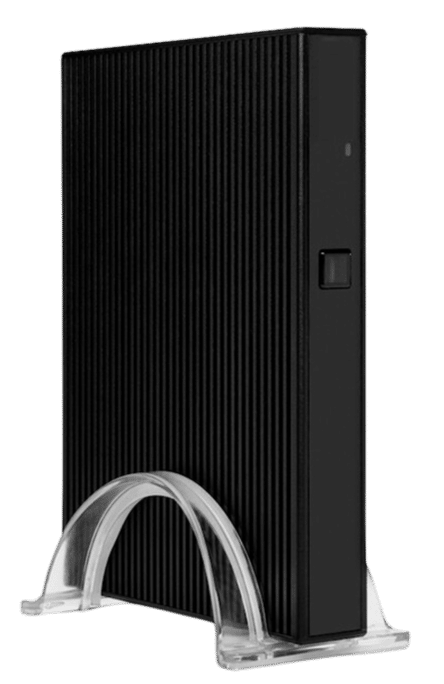
5. All-In-One Receipt Printer (TM30 Gen 3)
Lightspeed’s All-In-One Receipt Printer is a TM-M3III thermal receipt printer compatible with Lightspeed’s X-Series, R-Series, K-Series, and L-Series products. It offers a range of connectivity options: USB, Ethernet, Dual WiFi, and Bluetooth.
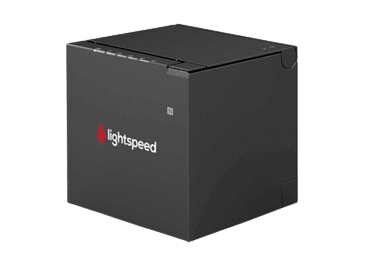
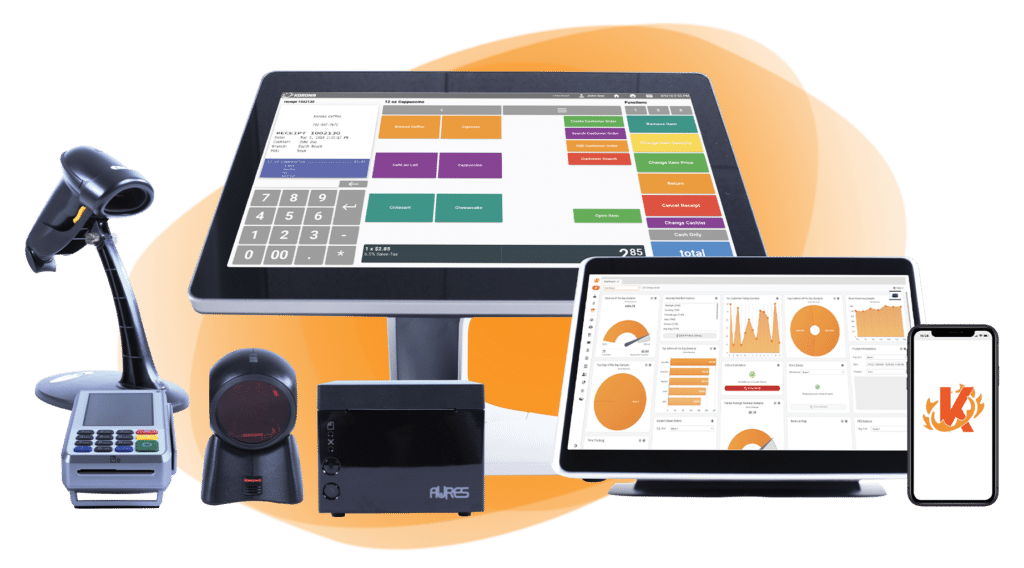
Build Your Own POS Setup
Whether you run a café, retail store, or event booth, we have the point of sale hardware designed for your specific needs. Start building your ideal POS system now.
Lightspeed Payment Processing Fees
Lightspeed’s payment processing fees depend primarily on the region, the business type, and the volume of transactions processed. Generally, for businesses in the United States, Lightspeed Payments charges a flat rate of 2.6% + $0.10 per transaction for card-present transactions and 2.9% + $0.30 for card-not-present transactions, such as online or manually entered payments.
Below is an estimate of monthly transactions based on your monthly transaction volume:
Monthly Transaction Volume (in USD) | Estimated Monthly Transaction Fee (in USD) |
$5,000 - $34,999 | $200 |
$35,000 – $99,999 | $400 |
$100,000 – $124,999 | $560 |
$125,000 – $149,999 | $680 |
$150,000 – $174,999 | $810 |
$200,000 – $249,999 | $1,120 |
$250,000+ | Contact an Account Manager |
Source: Lightspeed Payment Transactions
Third-Party Processors
Lightspeed POS allows businesses to use third-party payment processors if Lightspeed Payments does not meet their needs.
Choosing a third-party processor will enable businesses to negotiate rates, leverage existing relationships, or integrate specialized payment solutions. However, merchants that opt for a third-party processor will face significantly higher subscription rates and fees from Lightspeed.
What Businesses Can Expect From Lightspeed POS?
Businesses can expect several benefits from Lightspeed POS, depending on their specific needs and industry (retail or restaurant). Here’s a breakdown of some key areas:
Lightspeed POS Key Features or Deciding Factors
Inventory Management | Centralized inventory management across locations, multi-variant product handling, and purchase order creation |
Sales Channels | Supports in-store, online, and omnichannel selling (including click-and-collect) |
Payments Processing | Integrated payment processing with popular methods (credit, debit, cash, contactless) and built-in fraud detection. Lightspeed has its own payment processing plateform called Lightspeed payment. |
Reporting & Analytics | Real-time sales reports, customizable dashboards, and advanced customer data |
Customer Management | Customer profiles, tiered loyalty programs, and marketing automation tools |
Staff Management | Staff scheduling, permission controls, and unlimited user accounts |
Integrations | Integrates with various business tools and accounting systems. Lightspeed integrates with Orderhive, Zoho Inventory, Xero, QuickBooks, Mailchimp, DoorDash or Uber Eats, and many more. |
Cloud-Based | Accessible from any device with an internet connection |
Pros of Lightspeed POS
User-friendly interface
Lightspeed POS is celebrated for its user-friendly interface, making it accessible to users of all technical skill levels. This ease of use ensures that businesses can quickly train their staff, minimizing downtime and enhancing overall productivity.
The intuitive design allows for swift navigation through various functions, streamlining daily operations and reducing the learning curve typically associated with new technology.
Efficient inventory management
One of Lightspeed POS’s standout features is its efficient inventory management capabilities. The system simplifies the process of tracking stock levels, managing product variations, and handling orders.
Although the API between retail and eCommerce is one-way, which can be seen as a limitation, the retail inventory system itself is robust and reliable. This feature is particularly beneficial for businesses looking to maintain accurate inventory records with minimal effort.
Comprehensive and intuitive POS system
Lightspeed POS offers all the essential features required for effective retail management. It supports matrixes for product variations, allows for easy SKU setup, and is generally intuitive to use.
These features ensure that businesses can efficiently organize their products and manage sales, contributing to smoother operations and better customer service.
High performance and data management
Lightspeed POS’s key strength is its performance, as it operates entirely online and delivers fast processing speeds.
Additionally, the system facilitates easy data management, allowing users to import and export data seamlessly between Lightspeed and Excel. This capability is crucial for businesses that need to handle large amounts of data, perform detailed analyses, and ensure that their records are always up to date.
Cons of Lightspeed POS
Difficult customer service experience
Many users report that their experience with Lightspeed POS has been overwhelmingly negative right from the start. The lack of effective support and unresponsive onboarding personnel has compounded the problem, creating a challenging scenario where businesses are left without a functional POS solution despite being under contract.
The threat of hefty fines for contract termination makes this problem even more alarming, essentially trapping customers in an unsatisfactory arrangement.
Risky chargeback policies
Lightspeed POS’s handling of chargebacks poses a significant risk to businesses. A critical flaw is that the system allows debit card chargebacks to proceed without requiring the return of the merchandise.
Misleading sales tactics
Lightspeed POS’s customer service has been widely criticized as subpar, with customers reporting unresponsive and unhelpful support teams.
Adding to the frustration, the company has been accused of aggressively promoting and selling add-ons that fail to deliver their promises, further eroding trust and confidence in the platform.
Furthermore, accessing meaningful reports, such as inventory valuations, incurs additional costs, adding to the dissatisfaction with Lightspeed’s sales team and the product’s value proposition. These additional costs can make Lightspeed a more expensive choice compared to Square or KORONA POS.
Frequently Asked Questions
Lightspeed is considered a good POS system by many businesses and reviewers. It is praised for its comprehensive feature set, user-friendly interface, and flexibility to suit various types of businesses, including retail stores and restaurants. Lightspeed does, however, have many negative user reviews across third-party software review websites.
Lightspeed POS typically charges a payment processing fee of around 2.6% + $0.10 per transaction for card-present transactions and 2.9% + $0.30 for card-not-present transactions. However, these rates can vary based on the specific agreement and volume of transactions. It’s best to contact Lightspeed directly for precise details tailored to your business.
Yes, Lightspeed Payments is a legitimate and secure payment processing solution integrated with the Lightspeed POS system. It offers reliable and compliant payment processing services, ensuring transactions are handled safely, though the fees are slightly higher than industry averages.
Lightspeed POS plans typically do not include hardware by default. Hardware, such as iPads, receipt printers, barcode scanners, and cash drawers, must be purchased separately. Lightspeed does offer hardware bundles and leasing options to accommodate various business needs.
Lightspeed POS offers both monthly and annual subscription plans. While the monthly plans do not require long-term contracts, opting for an annual plan can provide cost savings. It’s important to review the terms and conditions of the subscription plan to understand any commitments or cancellation policies.
Whether Lightspeed is better than Shopify depends on your business’s specific needs. Lightspeed is highly regarded for its robust POS features tailored to the retail and restaurant industries, while Shopify is renowned for its eCommerce capabilities and integration with its online store platform.
KORONA POS: An Alternative to Lightspeed POS
KORONA POS is a robust alternative to Lightspeed POS, particularly for high-risk retail stores such as liquor, vape, CBD, smoke, and tobacco shops. This system is designed to handle the unique challenges these industries face, offering features like advanced age verification, compliance tracking, and scalable inventory management.
Its robust reporting and analytics tool and customizable dashboard allow store owners to monitor sales trends, track stock levels, and manage promotions effectively. Additionally, KORONA POS is processing-agnostic, which means you have the flexibility to choose your preferred payment processor without being locked into a single provider.
For quick-service restaurants like coffee shops and bakeries, KORONA POS provides a seamless and efficient POS experience. Its user-friendly interface supports quick order processing, table management, and customer loyalty programs, ensuring smooth operations during peak hours.
Moreover, KORONA POS offers comprehensive support and training, making it easy for staff to get up to speed quickly. The flexibility to integrate with various payment processors also allows quick-service restaurants to negotiate the best transaction rates and terms, enhancing overall profitability.
Lightspeed POS Review: Conclusion
Lightspeed POS is robust and feature-rich POS software that meets the needs of retail stores and restaurants. Its user-friendly interface, strong inventory management capabilities, and support for omnichannel selling are major advantages. However, users have reported issues like poor customer service, risky chargeback policies, and misleading sales tactics that should not be overlooked.
Ultimately, whether Lightspeed POS is the right fit depends on your specific business requirements and priorities. Alternatives like KORONA POS may be better suited for certain high-risk retail verticals.
As with any major software investment, it’s crucial to thoroughly evaluate your options, read reviews from real users, and ensure the chosen solution aligns with your operational needs and budget. With careful consideration, you can find a POS system that optimizes efficiency and profitability for your business. Click below to try or get a demo of KORONA POS if you want to learn more.

